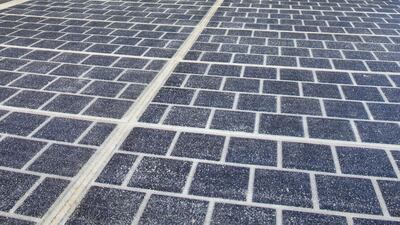Dubai will add low-energy light poles that provide Wi-Fi throughout the emirate next year, Dubai Electricity and Water Authority (Dewa) said on Monday . It added that it was also evaluating technology to create solar roads.
Dewa’s joint venture with Germany’s Innogy, Innogy International Middle East, has signed a memorandum of understanding with the French lighting company Ragni to design and implement smart lighting poles.
“The smart poles that will be produced in the first quarter of 2018, combine multiple innovative features that support smart-city infrastructure according to the highest international standards,” said Saeed Al Tayer, managing director and chief executive of Dewa.
These structures will support smart mobility, including autonomous driving as well as Wi-Fi, all the while using energy-saving lighting and environmental intelligence to maximise efficiency.
______________________
Read more:
Water sourced from desert air – and it's no mirage
______________________
In addition, the Dubai utility met Colas Group, a French civil engineering firm specialising in road and rail construction, to explore a joint collaboration for solar photovoltaic (PV) panels, with the research and development centre in Dubai.
Mr Al Tayer said that the utility reviewed the Wattway technology used to produce solar energy from panels that are installed on existing roads.
“This innovative technology makes use of the road’s surface, without any need for special engineering work,” he said, adding that there were even more possibilities to develop the technology further for charging electric vehicles.
There is no need to retrofit existing infrastructure. The panels can be installed directly on the current pavement without further engineering work.
According to Colas, a 1-kilometre stretch of road paved with the technology can provide electricity to power public lighting in a city of 5,000 people. Using only 20 square metres of Wattway panels can supply the electricity required for one home.
For the past five years the company has been developing Wattway, composed of cells inserted in superposed layers that ensure resistance and tyre grip. The material is just a few millimetres thick, which is what makes it possible to adapt to thermal dilation in the pavement as well as vehicle loads – basically the durability and safety.
And while cars may shade parts of the panels while en route, Colas said roads are actually only used 10 per cent of the day.
These additions will correspond to other initiatives such as the emirate's goal to have solar panels on every roof by 2030 to reach the goal of having 25 per cent of its total energy output from clean energy by 2030 and 75 per cent by 2050.
“These innovative initiatives support Dewa’s effort to promote Dubai’s sustainable and comprehensive development, and the national efforts to increase reliance on clean energy, protect the environment and sustain our natural resources,” Mr Al Tayer said.
______________________
Read more:
Life in the fast lane - the future of transport in the UAE
______________________

